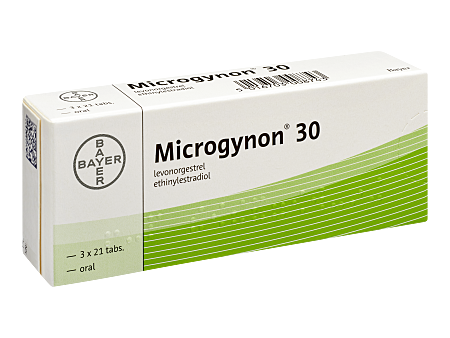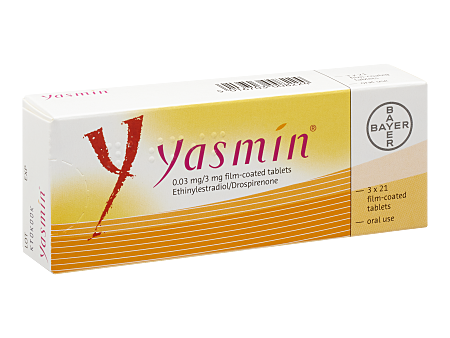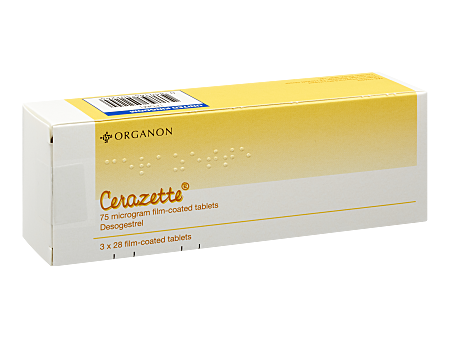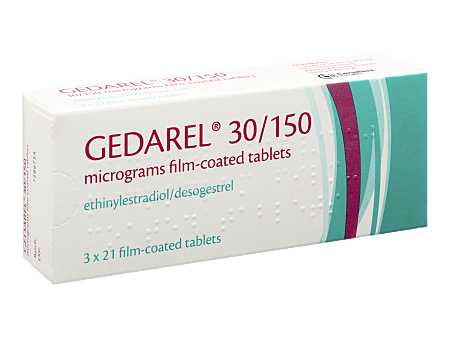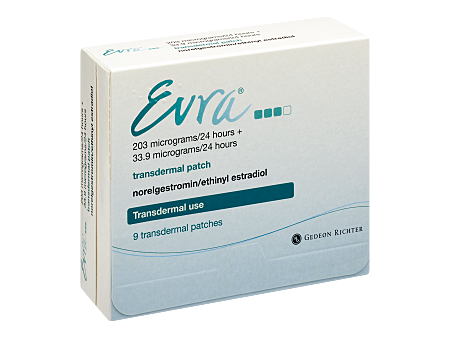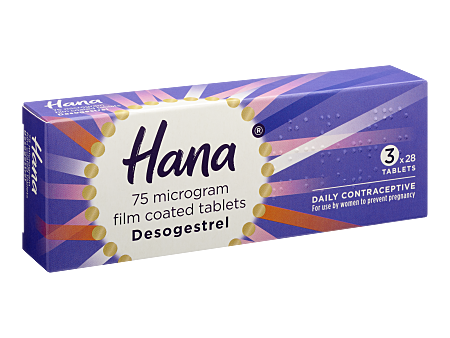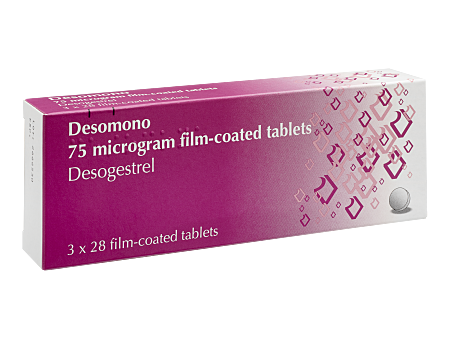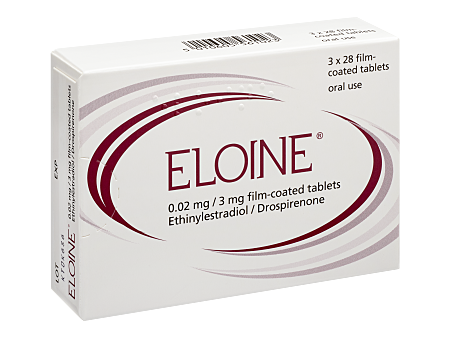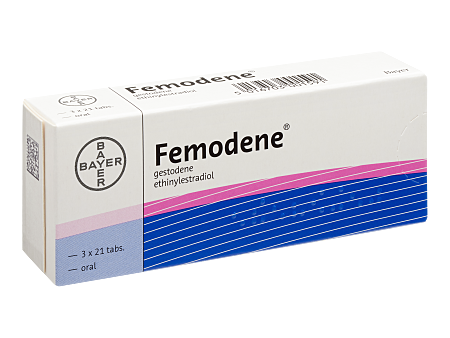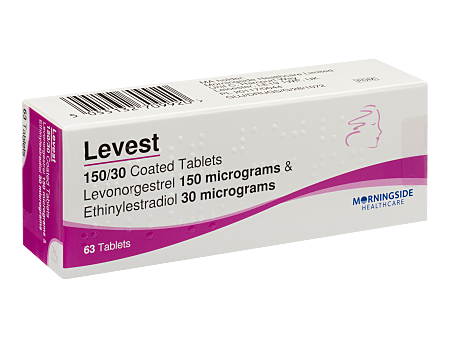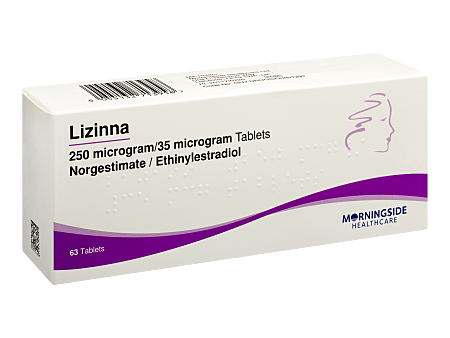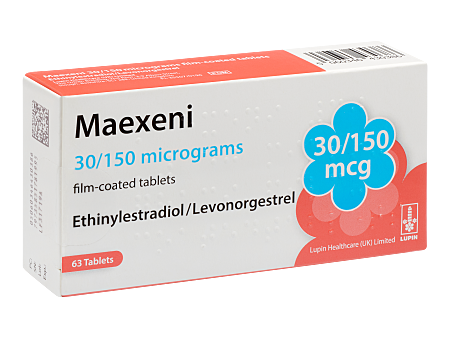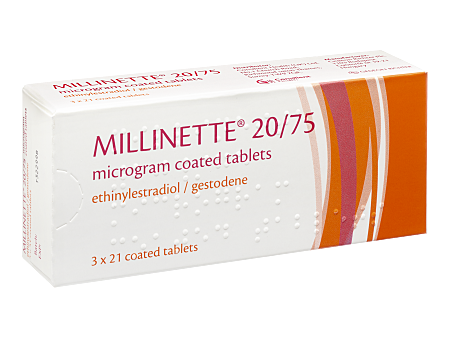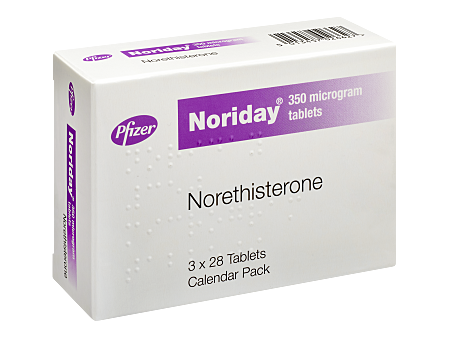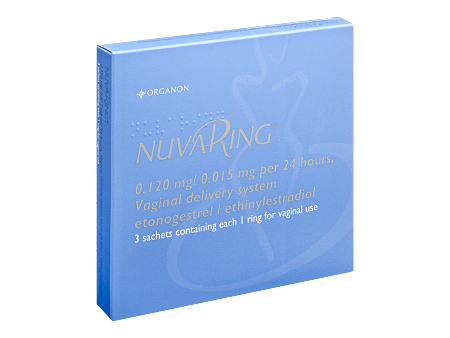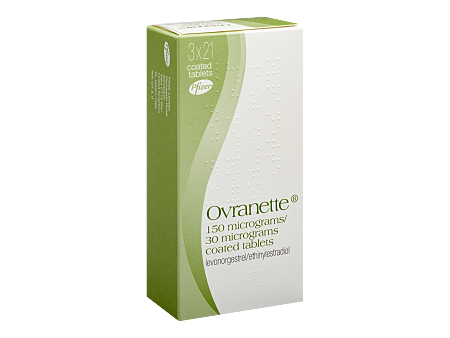What’s the Best Contraceptive Pill?
Find the Best Pill for You
With so many contraceptive pills to choose from, it can be difficult to know which one is the best pill for you. While there are many different brands of the pill, they are all equally effective at preventing pregnancy.
Which pill and which brand is right for you depends on what benefits you’d like to get out of the pill, if you have any pre-existing health conditions or certain risk factors, and your lifestyle. Read more to find out what types of pills there are, and which one is best suited to you.


Medically reviewed by
Dr Louisa DraperLast reviewed: 07 Jul 2021
- 1. Find the Best Pill for You
- 2. What is the Best Contraceptive Pill for Me?
- 3. Which Contraceptive Pill Has the Most Side Effects?
- 4. Which Contraceptive Pill is Best for My Skin?
- 5. Which Contraceptive Pill is Best for Depression, Anxiety and Changes in Mood?
- 6. Which Contraceptive Pill is Best if I Get PMS or PMDD?
- 7. Which Contraceptive Pill is Best for PCOS?
- 8. Which is the Best Contraceptive Pill for Endometriosis?
- 9. Which is the Best Contraceptive Pill for Painful or Heavy Periods?
- 10. Which is the Best Contraceptive Pill for Skipping My Period?
- 11. Which Contraceptive Pill Will Affect My Sex Drive?
- 12. I’m Breastfeeding, Which Contraceptive Pill is Best for Me?
- 13. What’s the Best Contraceptive Pill for Migraines?
- 14. What Contraceptive Pill Should I Take if I Am Overweight?
- 15. Which Contraceptive Pill is Best if I Am Trying to Lose Weight?
- 16. What Contraceptive Pill is Best if I’m Over 35?
- 17. Which Contraceptive Pill is Best if I Have High Blood Pressure?
- 18. Which Contraceptive Pill is Best if I Smoke or Vape?
What is the Best Contraceptive Pill for Me?
Contraceptive pills are tablets taken daily to prevent pregnancy. Taken correctly, they are up to 99% effective. But, because of things like missing a pill, or having diarrhoea or vomiting (being sick), on average the pill is actually about 91% effective.
There are two different types of pills available: the combined pill and the mini pill. For both types, there are many different brands available. All the different pills are almost just as effective at preventing pregnancy if taken correctly. But, some types are more suitable if you have certain health conditions or need a longer timeframe in which to take them each day.
Your doctor or pharmacist will make sure it is safe for you to take the pill before prescribing it. As different brands use different combinations of hormones, you may find that one brand works better for you than others. Working out which pill suits you best can be trial and error, based on what benefits you want to get out of the pill and the side effects you might have. We can give you pointers to help you discuss with your doctor where to start.
Most contraceptive pills need a prescription from a doctor, but two mini pills (Lovima and Hana) are available over the counter following an assessment by a pharmacist, and can be bought online conveniently with Superdrug Online Doctor.
The contraceptive pill does not protect you from sexually transmitted infections (STIs). The only way to do this is to use a condom every time you have sex.
Mini pill
The mini pill, also known as the progestogen-only pill or POP, is a type of contraceptive pill that only contains an artificial (man made) version of progesterone. This makes it more suitable for women who are advised not to take contraceptives that contain oestrogen, such as the combined pill. You take the mini pill every day, without taking a break. The mini pill must be taken within a specific time frame each day, either 3 hours or 12 hours depending on which brand you use.
Advantages of the Mini Pill
- Suitable for women who cannot take oestrogen (such as breastfeeding women, or women with high blood pressure)
- Safe for smokers over 35
- It can help with PMS symptoms and painful or heavy periods
Disadvantages of the Mini Pill
- Depending on which mini pill you use, you need to take it within 3 or 12 hours of your usual time every day
- It may cause temporary side effects in the first few months, such as headaches, breast tenderness, weight change and spots
- Your periods may become irregular or stop altogether. Spotting in between periods is also common with the POP. Some women may have heavier periods.
- Does not help improve acne
Combined pill
The combined pill contains artificial (man made) versions of progesterone and oestrogen. Due to the oestrogen it contains, it is not suitable for women who have:
- a high BMI
- high blood pressure
- some types of migraine (especially with aura)
It is also less suitable for those who smoke, especially if over 35. It also may be less suitable for women with various other conditions, which is why you must talk to your doctor before getting the pill.
On the other hand, oestrogen in the combined pill can help with period pain, heavy periods and acne. Most combined pills are taken every day for 21 days, with a 7 day break before you start the next packet. Some combined pills have dummy pills which contain no hormones, which help you stick to a routine of taking the pill daily and make it easier to remember to start your next packet on time.
The pros
- Easier to take than the mini pill, as they do not need to be taken at the same time every day.
- Can make periods lighter, more regular and less painful
- It may help PMS symptoms
- Certain brands can help with acne
- Studies have found that it reduces the risk of ovarian, uterine and colorectal cancer
- Does not affect your fertility once you stop using it
- Does not cause weight gain
- Helps with problems associated with polycystic ovarian syndrome
The cons
- Side effects including headaches, nausea, mood changes, and breast tenderness are common in the first few months of taking it
- Can increase your risk of breast and cervical cancer
- Can increase your risk of deep vein thrombosis (DVT)
- It may not be suitable if you’re a smoker and are over 35 years old, have a family history of breast cancer, have cardiac problems or are very overweight
Which Contraceptive Pill Has the Most Side Effects?
While many women take the contraceptive pill without problems, some women have side effects. The pill affects each woman differently, so you may get different side effects than another woman on the same pill, or the side effects may be more or less serious. Both the mini pill and combined pill cause side effects, though they are slightly different.
Side effects of the contraceptive pill are caused by hormonal changes, so taking a contraceptive pill with a lower dose of hormones, such as Gedarel 20 or Mercilon, may help with side effects.
Minor side effects are usually temporary, and often improve in a few months as your body adjusts to the hormones. If you are still experiencing side effects after 3 months, or if you’re finding the side effects too much to deal with, speak with your doctor about switching pills.
View Contraceptive Pill Treatments
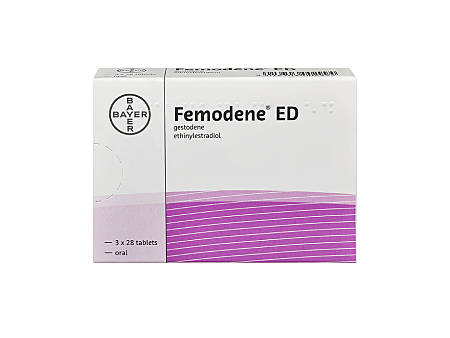
Femodene taken every day without a pill-free break
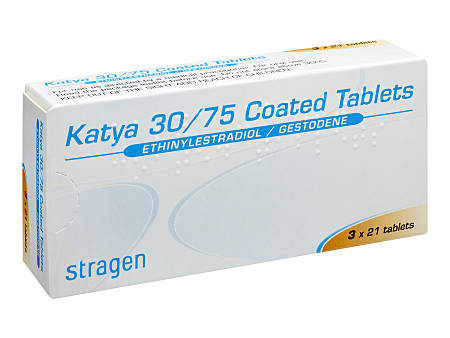
A good option for heavy, painful or irregular periods
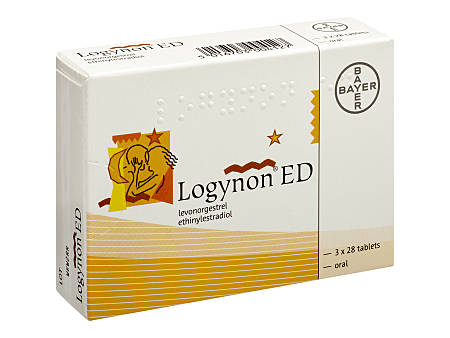
Logynon taken every day without a pill-free break
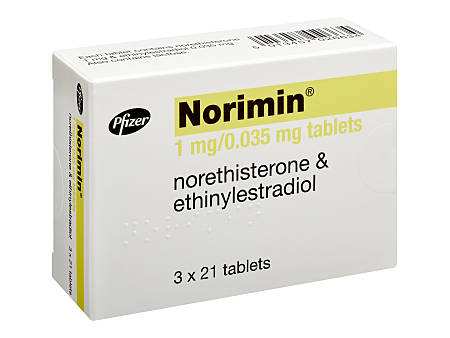
Can lead to lighter and less painful periods

Can improve period-related problems
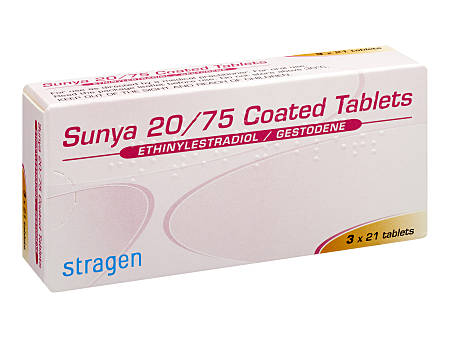
A combined pill with fewer oestrogen-related side effects
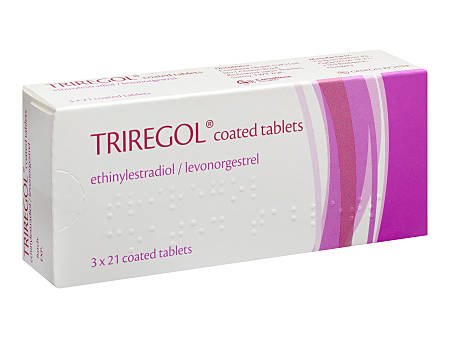
A triphasic combined contraceptive pill

Get advice from a doctor on picking a pill

Please check your spelling or try another treatment name.
Which Contraceptive Pill is Best for My Skin?
The best pill for hormonal acne is the combined pill. It can help to balance and regulate your hormone levels, preventing acne flare-ups.
Acne happens when the pores of your skin become clogged up with oil, dead skin, or bacteria. This sometimes happens because your skin produces too much sebum, an oily substance that helps protect the skin. It has been found that oestrogen can reduce the amount of sebum your skin produces, making the combined pill an effective treatment for acne.
Dianette is a combined pill that can be prescribed to women as a treatment for acne rather than as a contraceptive, but it does have a higher risk of blood clots than other pills. This means it’s not a recommended contraceptive pill. Yasmin and Lucette are safer alternatives that doctors may recommend for acne.
Which Contraceptive Pill is Best for Depression, Anxiety and Changes in Mood?
Taking the contraceptive pill causes changes in your hormonal balance, which can have an effect on your mental health. For some women the pill can make their mood worse, whereas others notice no change or see improvements. Changes to your mood are more common in the first 3 months of taking the pill as your body adjusts to the hormonal changes.
Which Contraceptive Pill is Best if I Get PMS or PMDD?
If you suffer from PMS (premenstrual syndrome) or PMDD (premenstrual dysphoric disorder), the best contraceptive pill to take is the combined pill as it helps to regulate the oestrogen in your system.
Studies have found that taking a combined pill with drospirenone (a type of progesterone) and a low dose of oestrogen can help with the symptoms of PMS and PMDD. Your doctor may also recommend making the pill break shorter or removing it completely, to help with symptoms.
As the pill can affect women differently, some women may find that taking the contraceptive pill makes their PMS or PMDD symptoms worse. It is important to talk to your doctor about your situation and discuss your options.
Which Contraceptive Pill is Best for PCOS?
PCOS (polycystic ovarian syndrome) is a common health problem caused by hormonal imbalances. Some of the main symptoms are irregular periods, growing facial hair and difficulty getting pregnant.
Hormonal contraception can help balance and regulate your hormone levels, which can reduce PCOS symptoms. The combined pill is recommended to manage PCOS symptoms because it regulates the oestrogen and progesterone in your system.
If you cannot take the combined pill, your doctor may advise you to try the mini pill. Regulating your levels of progesterone can help manage the symptoms of PCOS.
Which is the Best Contraceptive Pill for Endometriosis?
Endometriosis is when tissue similar to the lining of your womb grows in other parts of your body, such as the fallopian tubes or your ovaries. Symptoms include stomach pain, period pain and pain during sex.
It is not known what causes endometriosis but if you have been diagnosed with endometriosis, the contraceptive pill is sometimes used to help with some of the symptoms. Both combined pills or mini pills may be useful, so it is best to discuss with your doctor.
Which is the Best Contraceptive Pill for Painful or Heavy Periods?
The contraceptive pill is often recommended as a treatment for painful or heavy periods. This is because the pill regulates and balances the hormones in your system, which cause heavy or painful periods.
Both the combined pill and the mini pill can help, but the combined pill is usually recommended as a first step due to the fact it regulates the oestrogen as well as the progesterone in your body.
A common side effect of the mini pill is spotting or irregular bleeding, which can mean it is not the best option for treating painful or heavy periods.
Which is the Best Contraceptive Pill for Skipping My Period?
The combined pill can be used to skip your period. On the combined pill, you take a 7 day break each month and during this time you have a withdrawal bleed (your period). But, you can take the combined pill back to back without the break and skip your period. Talk to your doctor if you plan to do this often.
The mini pill may also be useful as some women find they have no periods, or fewer periods, when taking this pill. The mini pill is taken continuously, so there is no specific break during which you get your period. For this reason, you cannot guarantee that you will skip your period using the mini pill.
Which Contraceptive Pill Will Affect My Sex Drive?
Women report both an increase and a decrease in their sex drive when taking the contraceptive pill.
The effects of all pills on sex drive are very unpredictable and vary from woman to woman. If you are unhappy with the changes you notice or feel, it is worth waiting to see if they disappear after 3 months. If they do not, talk to your doctor about your options.
I’m Breastfeeding, Which Contraceptive Pill is Best for Me?
If you’ve recently given birth and are breastfeeding, the best pill for you is the mini pill as you can start taking it straight away. We recommend Cerazette or Cerelle when starting a mini pill, as it has a 12 hour window for missed pills, so it can be easier to use than other mini pills with a 3 hour window.
It is not recommended to take the combined pill until at least 3 weeks after giving birth due to the increased risk of blood clots during this period. Oestrogen can increase the risk of blood clots and also affect the production of breastmilk. This means you have to wait until 6 weeks after giving birth to start taking the combined pill if you are breastfeeding, or you might want to consider using another option whilst breastfeeding. You should talk to your doctor about this.
While traces of the hormones in the pill have been found in breastmilk, they do not affect the quality of it. Which pill you take depends on other factors such as risk of clotting and other pre-existing conditions. Your doctor or health visitor will advise you.
What’s the Best Contraceptive Pill for Migraines?
Taking the combined pill can help balance the dips of oestrogen which can cause hormone (menstrual) migraines. All combined pills work the same way to balance your oestrogen levels so there is no specific recommendation.
If you get migraines with aura, the best pill for you is the mini pill. This is because the oestrogen in the combined pill increases your risk of ischaemic stroke.
What Contraceptive Pill Should I Take if I Am Overweight?
If your BMI is over 30, you should take the mini pill. This is because the combined pill can increase your risk of blood clots and heart problems. If you have a high BMI you are already at a higher risk of these. Our doctors recommend Cerazette or Cerelle when starting to take the mini pill if you have a high BMI.
Which Contraceptive Pill is Best if I Am Trying to Lose Weight?
There have been lots of research studies in this area and the evidence does not suggest that any contraceptive pill can help you either lose or gain weight. The oestrogen in the combined pill can cause an increase in appetite and also fluid retention when you first start taking it but this normally settles down after 3 months. There are many different pills to try if you think the one you are taking is stopping you from losing weight. Talk to your doctor about the options.We have more information on weight gain and the contraceptive pill.
What Contraceptive Pill is Best if I’m Over 35?
If you’re over 35 and have certain risk factors such as smoking, blood clots or heart conditions, it is recommended that you take the mini pill. This is because age increases the rest of these conditions and the oestrogen in the combined pill also increases those risks.We recommend Cerazette or Cerelle when starting to take the mini pill.If you are over 35 and have no pre-existing health conditions or risk factors, then it may be safe for you to take either the combined pill or the mini pill. The doctor or pharmacist prescribing you the pill will make sure that what you are taking is safe for you.
Which Contraceptive Pill is Best if I Smoke or Vape?
If you smoke but are under 35 and do not have any other health conditions or risk factors, the guidelines say you can take either the combined or the mini pill. Smoking always increases your risks of side effects, at any age.If you are over 35 and smoke, the best pill for you is the mini pill. This is because due to your age and your smoking you are already at a higher risk of blood clots, stroke and heart attacks, and the oestrogen in the combined pill increases this risk again. We recommend Cerazette or Cerelle.E-cigarettes contain nicotine, which raises your blood pressure and puts you at a greater risk of a heart attack. If you vape you should use the same recommendations for people who smoke.
Sources
- Your contraception guide (2021) NHS [accessed 26 April 2021]
- Hormonal treatment of acne in women NCBI [accessed 26 April 2021]PMDD Harvard Health [accessed 26 April 2021]
- Birth control with drospirenone Cochrane [accessed 26 April 2021]
- Hormone headaches (2018) NHS [accessed 26 April 2021]
- Combined Pill Contraception Choices [accessed 26 April 2021]
- Mini Pill Contraception Choices [accessed 26 April 2021]
- Contraceptives, hormonal (2020) NICE [accessed 26 April 2021]

